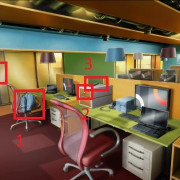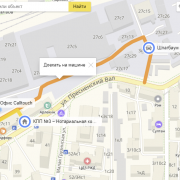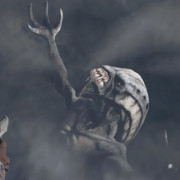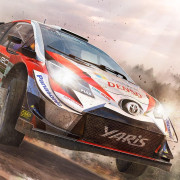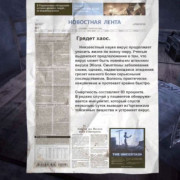Seus ptgi e10 [1.15.2] [1.14.4] [1.12.2] [1.7.10]
Содержание:
- Why did you make Iris?
- Major changes for all versions
- How to Install SEUS Shaders
- Credits
- But where’s the Forge version?
- SEUS Shaders Features and Additions
- Notable Changes:
- Goals
- Major fixes for 1.17.1 and above
- A Brief History of Sonic Ether’s Unbelievable Shaders (SEUS)
- What’s the current state of development?
- SEUS Shaders — Download Links
Why did you make Iris?
Iris was created to fill a void that I saw in the Minecraft customization and graphical enhancement community: the lack of an open-source shaders mod that would let me load my favorite shader packs on modern versions of the game, while retaining performance and compatibility with modpacks. OptiFine, the current dominant mod for loading shader packs, has restrictive licensing that firmly stands in the way of any sort of tinkering, and is fairly notorious for having compatibility issues with the mods that I like. It’s also mutually incompatible with Sodium, the best rendering optimization mod in existence by a large margin. ShadersMod was never updated past 1.12, and it lacks support for many of the many modern popular shaderpacks. So I created Iris, to try and solve these issues, and also address many other longstanding issues with shader packs.
I first and foremost develop Iris to meet my own needs of a performance-oriented shaders mod with good compatibility and potential for tinkering. Iris when paired with Sodium delivers great performance on my machine, finally making it fully possible for me to actually play with shaders instead of just periodically switching them on to take pretty screenshots, then switching them off once I get tired of frame drops. Of course, as it turns out, I’m far from the only person who benefits from the development of Iris, which is why I’ve decided to release it to the public as an open-source mod.
Canvas is another shaders mod that has already gained some traction. Its big downside for me, however, is the fact that it doesn’t support the existing popular OptiFine shaderpacks that I want to use. This is because it uses a new format for shader packs that isn’t compatible with the existing format, in order to achieve many of its goals for better mod integration with shaders. And while Canvas now has a few nice shaders like Lumi Lights, I still want to have the option of using existing shader packs that were designed for OptiFine. Shader packs just aren’t interchangeable, just like how you cannot hand a copy of The Last Supper to someone who wants a copy of the Mona Lisa. They’re both great pieces of art, but you absolutely cannot just swap one out for the other. That being said, if you’re a fan of the shader packs available for Canvas, then great! Canvas and Iris are both perfectly fine ways to enjoy shaders with Minecraft.
Major changes for all versions
- Shadow culling has been completely rewritten. It no longer incorrectly culls chunks compared to OptiFine, and overall performance has improved greatly compared to the previous system (especially with shader packs like Enhanced Default, BSL, and Complementary Shaders).
- A Max Shadow Distance slider is now available in Video Settings, allowing you to tweak the render distance of shadows on packs that don’t specify one.
- Batched entity rendering has been completely rewritten, fixing many memory management, correctness, and performance issues.
- Fog now fully works in most shader packs, including Sildur’s Enhanced Default and other vanilla-like shaders
- Entities now flash red when hurt, and flash white when they are going to explode
- End portals now properly render with most shader packs
- blockEntityId and entityId are now fully supported (Fixes many issues with Complementary Shaders’ Integrated PBR)
- Iris now has initial support for the path-traced lighting in SEUS PTGI, and has some fixes to the lighting in SEUS Renewed. (SEUS PTGI is still not officially supported, its water still does not work on Iris.)
How to Install SEUS Shaders
This Shader is available for Minecraft 1.18 and previous versions. To install Shaders, don’t forget to install “OptiFine 1.18”.
Before opening any existing worlds from a version prior to 1.18 please make a backup and/or run them in a different folder from your main worlds.
Follow the steps below to install Seus Shaders.
- Step 1 – Have GLSL Shaders Mod downloaded and installed (for versions prior to 1.8.8). For version higher than 1.8.8, Optifine 1.18 should be installed.
- Step 2 – SEUS Shaders 1.18 should be downloaded.
- Step 3 – The mod you have downloaded should be saved in a .zip file. Have it copied into the folder named “.minecraft/shaderpacks”.
- Step 4 – The game should be opened. Headover to “Options/Shaders” and have the “SEUS” shader selected.
If you are a beginner and couldn’t install Shaders; We have an illustrated guide with screenshots on how to Install Minecraft Shaders. Failed to install Optifine? see our tutorial installing Optifine.
Credits
- TheOnlyThing and Vaerian, for creating the excellent logo
- Mumfrey, for creating the Mixin bytecode patching system used by Iris and Sodium internally
- The Fabric and Quilt projects, for enabling the existence of mods like Iris that make many patches to the game
- JellySquid, for creating Sodium, the best rendering optimization mod for Minecraft that currently exists, and for making it open-source
- All past, present, and future contributors to Iris, for helping the project move along
- Dr. Rubisco, for maintaining the website
- The Iris support and moderation team, for handling user support requests and allowing me to focus on developing Iris
- daxnitro, karyonix, and sp614x, for creating and maintaining the current shaders mods
But where’s the Forge version?
Iris doesn’t support Forge. This is for a few reasons:
- My time is limited, and properly supporting all the mods available for Forge (as well as Forge itself) is a huge amount of work. When people ask for Forge support, they aren’t asking just for Iris to run on Forge, they are also asking for it to be compatible out of the box with their kitchen sink modpack that contains over 300 mods. As a result, properly supporting Forge would require me to divert large amounts of precious time into fixing tedious compatibility issues and bugs, time that could instead be spent making the Fabric version of Iris better.
- The Forge toolchain isn’t really designed to play nice with mods like Iris that need to make many patches to the game code. It’s possible, but Fabric & Quilt are just better for mods like Iris. It’s no coincidence that the emergence of Fabric and the initial emergence of OptiFine replacements happened at around the same time.
- Sodium, which Iris depends on to achieve its great performance, has no official Forge version. It’s a long story, but in short: the lead developers of Forge were incredibly hostile to JellySquid when she developed for Forge, and since then have made no credible attempts to repair relations or even admit wrongdoing.
The license of Iris does permit others to legally port Iris to Forge, and we are not strictly opposed to the existence of an Iris Forge port created by others. However, what we are opposed to is someone doing a bare-minimum port of Iris to Forge, releasing it to the public, and then abandoning it or poorly maintaining it while compatibility issues and bug reports accumulate. When that happens, not only does that hurt the reputation of Iris, but we also ultimately get flooded by users wanting support with a low-effort Forge port that we didn’t even make.
So, if you want to distribute a Forge port of Iris, we’d prefer if you let us know. Please don’t just name your port «Iris Forge,» «Iris for Forge,» or «Iris Forge Port» either. Be original, and don’t just hijack our name, unless we’ve given you permission to use one of those kinds of names. If a well-qualified group of people willing to maintain a Forge port of Iris does appear, then a name like «Iris Forge» might be appropriate — otherwise, it probably isn’t appropriate.
SEUS Shaders Features and Additions
With SEUS Shaders 1.17.1, there is absolutely no doubt that all the primitive graphics in your world will be enhanced. The depth that it brings is quite massive. For instance, there is 3D visuals and lighting. It won’t change the blocky shape of items, though. However, there will be a light covering such items in the form of shadows. These shadows are natural. Also, you will be discovered that there is improvement in terms of how water in your world looks. For the first time, you will find out how water can contribute to making your world appear very beautiful.
The clouds are looking very realistic. They will be flying as well as disappearing. The landscape is also looking very natural. For instance, mountains will be rising far away. The question on your mind right now is whether SEUS Shaders 1.14.4 offers more than traditional resource packs in Minecraft. The simple answer is yes, it does. For instance, resource parks can only tweak your game’s aesthetics. However, a tool like Minecraft Seus Shaders offers more by improving the game’s graphics.
If you have been looking for how to make your world appear natural and authentic, this is one of the few mods that can help out. The changes that it brings to your world have no limitations. You will find its additions and features quite fascinating. If you can install this mod, there will not be any need to search for other mods that can address visual problems in your world.
Compatibility
Compatible with all of these Minecraft versions: 1.18 – 1.17.1 – 1.16.5 – 1.15.2 – 1.14.4 – 1.13.2 – 1.12.2 – 1.10.2 – 1.9.4 – 1.8.9 – 1.7.10 – 1.6.4 – 1.5.2
It is essential to know that although SEUS Shader is a powerful mod, your system needs to be of the high specification before its features can be explored. For instance, it will demand a lot from your graphics card. This makes it less recommended for old systems. Trying to install it on such can only bring about lagging issues.
The bottom line is that if you want to enjoy its features, ensure the graphics processing power of your system is high. Even if your system has powerful graphic processing ability, there are still some things to do. For instance, it is crucial to install GLSL Shaders Mod, Optifine HD, and Minecraft Forge.
Some players have pointed out that downloading and installing versions of SEUS such as 1.17.1 and 1.17 can bring about optimization. You can try out these versions for the best results. Please note that other versions are also safe and recommended.
SEUS PTGI is a special version for those who want to use RTX and don’t have a graphics card that supports Ray Tracing.
Notable Changes:
This release primarily fixes a number of stability issues in the 1.17.1 version of Iris. Previously, the bundled version of Sodium for 1.17 was based on an older beta build, but now we’ve released to the much more stable Sodium 0.3.0 release. In addition, IMS fixed a memory leak in the sky horizon rendering code on Iris for 1.17.1.
Overall, Iris 1.1.1 for 1.17.1 is much more stable than Iris 1.1.0 for 1.17.1!
We’ve been working on a much bigger update, but unfortunately that code isn’t quite ready yet. Instead of continually holding back critical fixes until that code is ready, we’ve decided to pull the critical fixes into an intermediate build, giving us time to polish up the next update.
Goals
These are the goals of Iris. Since Iris isn’t yet complete, it hasn’t fully achieved all of these goals, though we are on the right track.
- Performance. Iris should fully utilize your graphics card when paired with optimization mods like Sodium.
- Correctness. Iris should try to be as issueless as possible in its implementation.
- Mod compatibility. Iris should make a best effort to be compatible with modded environments.
- Backwards compatibility. All existing ShadersMod / OptiFine shader packs should just work on Iris, without any modifications required.
- Features for shader pack developers. Once Iris has full support for existing features of the shader pipeline and is reasonably bug free, I wish to expand the horizons of what’s possible to do with Minecraft shader packs through the addition of new features to the shader pipeline. Unlimited color buffers, direct voxel data access, and fancy debug HUDs are some examples of features that I’d like to add in the future.
- A well-organized codebase. I’d like for working with Iris code to be a pleasant experience overall.
- Agnostic of Minecraft versions. This is more of a long-term goal, but if it is possible to make the majority of Iris version-independent, then porting to new versions should be straightforward and quick. This theoretically works in the other direction as well, though Iris for 1.8.9 (and similar old versions) isn’t very practical currently since Sodium doesn’t exist for these versions of the game.
Major fixes for 1.17.1 and above
- End gateway beams no longer appear to render twice with shader packs that use shadows.
- Fixed separate leads incorrectly rendering as connected
- Block selection outlines now render properly, even with world curvature enabled. (due to a different issue that will be fixed soon, this doesn’t work with some packs like Enhanced Default.)
- Chunk borders (F3 + G), hitboxes, and other lines now render properly with shaders enabled. (similarly, this doesn’t work with some packs like Enhanced Default.)
- World borders render properly with most packs now.
- The energy swirl around charged creepers now renders properly.
A Brief History of Sonic Ether’s Unbelievable Shaders (SEUS)
When it comes to Shader packs that can improve the visuals of Minecraft game, very few have been able to achieve the feat of Seus Renewed Shaders 1.18 without compromise. This is due to the additions and effects that it brings to the game. This Shader pack was created in 2011 to upgrade the game’s graphics. Of course, everyone knows that Minecraft’s default visuals are mediocre in lots of regards. Items are looking unreal. For instance, you will notice that grass and some items have got blocky shapes and lack shadows.
To correct this problem, there has to be an innovation. Such is what SEUS Shaders 1.18 has been created to help address. It is existing to improve the graphics of Minecraft beyond its present state. In case you don’t know, this is one of the oldest Shaders. Therefore, expect nothing but the best features if there is one thing that SEUS has succeeded in doing, such as taking the game’s visuals to the next level. The author, Sonicether (also known as Cody), definitely deserves plenty of credits for coming up with this powerful tool that players can use to revive and transform their worlds into something extraordinary.
What’s the current state of development?
Iris has public releases for 1.16 and 1.17 that work with custom versions of Sodium. Iris has made a lot of progress, but it is still not complete software. Though it is already usable for many people, and generally provides a big performance boost over alternatives, there is still much to be done before Iris can be a complete replacement for OptiFine’s shaders features. As Iris continues its development, it will only become more and more complete with time.
Compatibility with Sodium is an ongoing project. I’ve been chatting with JellySquid over the course of many months regarding compatibility, and many refactors and improvements have been implemented into Sodium in order to better accommodate Iris.
SEUS Shaders — Download Links
Before starting the game, be aware that
- Please note that some Shaders have not been appropriately updated to 1.18. Still, all have been tested and work correctly in Minecraft 1.18.
- All download links are original and from the creator himself. We never host or edit any files. We only distribute them as a direct link to our users, ensuring security and quality. If you doubt this, don’t forget to read our Terms.
- It is noteworthy that the links may stop working with each new update. Even with all our efforts to keep everything updated, these things can happen; if any link is not working, please let us know.
- Leave feedback below on what you think of this Shader Pack; it helps the authors improve their packs.
